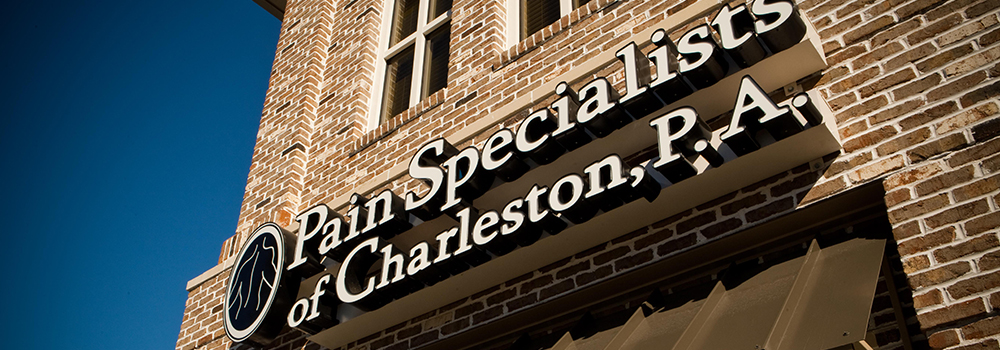Occasional aches and pains are a part of life, from stubbed toes to the stubborn effects of an old injury. But when pain becomes more than a minor inconvenience, it’s time to seek a specialist. If your favorite activities and everyday obligations start to feel like chores, acute or chronic pain may be to blame.
Finding the right specialist may seem daunting – which can make a pain solution seem far out of reach. But getting relief is simple here at Pain Specialists of Charleston! Our highly trained, experienced pain management physicians are proud to serve local patients, providing a standard of customized care unlike any other.
Before getting started, it’s important to understand the difference between interventional pain management and non-interventional pain management. We’re here to clear matters up, so read on to learn more!
The Science of Pain
Finding pain management near you starts with getting a grasp on the science behind your pain. Simply put, pain is a stimulation of nerves that triggers a physical sensation – one that can range from minor discomfort to debilitating agony. When the nerves encounter painful stimuli, they send a message to a specific part of the brain called the dorsal anterior cingulate cortex (DACC). This part is responsible for processing and regulating pain.
Because pain is not a “one-size-fits-all” experience, it affects every patient differently. Some pain leaves visible scars behind, while others are evident to only the sufferer. That’s why it’s crucial to find a pain management doctor near you who offers a personalized approach.
What is Interventional Pain Management?
Interventional pain management is an approach that employs various pain-blocking techniques to ease the discomfort of daily activities – and ultimately, restore your overall quality of life. This comprehensive strategy involves multiple disciplines, working together to achieve a common goal: improving your physical and mental well-being.
At Pain Specialists of Charleston, we do more than write prescriptions and perform surgeries. Our team is invested in your future, and in helping you get back the life you love.
How Are Interventional Pain Management Physicians Different from Conventional Pain Management Physicians?
Conventional pain management doctors often begin treating chronic and acute pain with non-interventional tactics, like drug treatments and in some cases, invasive surgery.
These over-the-counter and prescription medications are commonly recommended:
- Nonsteroidal anti-inflammatory drugs (NSAIDs): Ibuprofen and aspirin
- Acetaminophen: Tylenol
- Muscle relaxants: Medicines targeting pain caused by muscle spasms
- Antidepressants/anti-seizure medications: Often helpful in treating nerve pain
- Corticosteroids: Reduce swelling, redness, and allergic reactions
Interventional pain management treatments, however, are typically considered an alternative approach for chronic pain sufferers who have failed to find relief from conventional methods. To discuss your treatment options for pain management in South Carolina, contact our specialists today.
Types of Interventional Pain Management Treatments
From medical massage to joint injections, we believe that the right treatment is as unique as the patients themselves– and the specific type of pain they’re experiencing. At Pain Specialists of Charleston, our exceptional physicians offer a variety of safe and effective treatments to provide the much-needed relief you’ve been searching for.
Treatment options include the following:
- Nerve blocks: Used to interrupt the pain signals that travel from the nerves to the brain Nerve blocks vary in length, lasting from several hours to days, and can provide long-term or permanent relief.
- Injections: Involve a numbing agent and steroid used to target different areas of pain in the body. An epidural injection and a Facet Joint injection are two common types, both focused on the small joints of the neck and spine.
- Radiofrequency ablation: Utilize a radio wave to produce an electrical current that heats an area of nerve tissue. The heat essentially burns the tissue, dampening the pain signals sent to the brain.
- Spinal cord stimulation: Applies gentle electrical currents to the pain source.
- Discography: Injects a special dye into one or more spinal discs to help determine the pain’s source.
- Medical massage therapy: Helps abate pain symptoms while also providing physical and psychological benefits. Common massage therapies include deep tissue massage, trigger point therapy, and sports massage.
Trust Our Pain Management Clinic Near You

Resigning yourself to a lifetime of pain can make it difficult to face the future. But there’s no need to accept the pain – or subpar medical care that doesn’t look beyond conventional treatment.
As the leading provider of pain management in Charleston, SC, we believe that there’s more to treatment than medication and surgery. We will work with you to determine the root cause of your pain, and then design a treatment plan specifically for you.
Whether you’ve been suffering from decades of back pain or a recent Workers’ Compensation injury, our team is here to help you find relief and reclaim a pain-free life.
Pain Specialists of Charleston is now accepting new patients, so schedule your appointment today! No referral needed.
Request Appointment | Contact Us | Meet Pain Doctors | Visit Us
Additional Helpful Articles:
What Should I Expect During My First Pain Management Appointment?
What Does a Pain Management Physician Do?
Does Cracking Your Knuckles Cause Arthritis?
What’s the Best Leg Pain Treatment Without Surgery?
When Should I See a Doctor for Runner’s Knee?
Why Do Side Sleepers Wake Up to Shoulder Pains?
What are the Reasons for Random Pains in My Buttocks?
How Can I Get Immediate Relief for Sciatic Pain?
Get to Know Pain Management Physicians:
Our Services:
Diagnosis | Treatment | Interventional Pain Management | TRICARE | Wellness | Clinical Trials | Worker’s Compensation | Neurology | Imaging/ MRI
Published June 2024

